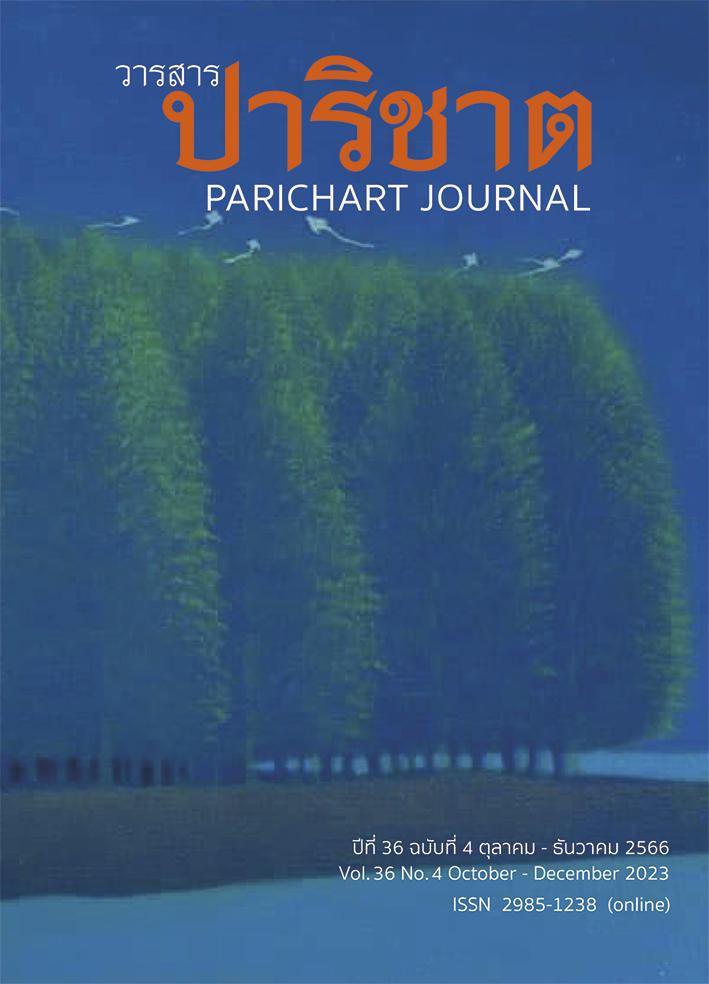A Study of Consumer Demand for Safe Vegetable in Lom Sak District, Phetchabun Province.
Main Article Content
Abstract
The purpose of this study was to study the determinants of demands affecting the decision to purchase safe vegetables of farmer groups in Lom Sak district, Phetchabun province. It was survey research by selecting a specific sample group by using random sampling method. Questionnaires were used to collect the data. The analysis was done by descriptive statistics and multiple regression. The study found that the factors determining the demands of safe vegetable consumption in Lom Sak district, Phetchabun province were income, price, preference, price of other related products, price expectation, information, government policies. All the factors are important at a high level. From the factors analysis affecting the demand by Stepwise method, it was found that factors of information, education, income, government policies, price of other related products, age and price influenced the price demands. There was a correlation in the same direction. However, the correlation of marriage status was inverse variable to price demand. The factors affecting income demands were information, income, price, price of safe vegetable, price expectation, income level, preference and taste influencing income demand in the same direction. Moreover, the factors affecting the cross demand were expectation of government policies, education, income, information, and age. These influenced the same direction. There was an inverse correlation between occupation and income demands and cross demands. For the policy determination of provincial development, the analysis results of the consumers interested in safe vegetables can be used to promote and educate the farmers of other districts to enhance opportunity of income increment.
Article Details

This work is licensed under a Creative Commons Attribution-NonCommercial-NoDerivatives 4.0 International License.
References
Kasetsart University Promotion and Training Office. n.d. Growing vegetables safe from toxins. http://eto.ku.ac.th/neweto/e-book/plant/herb_gar/save_veg.pdf.
National News Bureau of Thailand. (2018, July 19). Phetchabun Province Continuing to develop to be a model province for food safety quality system. https://thainews.prd.go.th/th/news/detail/TNSOC6107190010091.
Mingmaneenakin, W. (2016). Principles of microeconomics (20th ed.). Thammasat University Publisher.
Chintrakulchai, S., & Tangsangasaksri, S. (2019). Introduction to microeconomics. Thammasat University Publisher.
Pakotiprabha, S. (2005). Microeconomics. Kasetsart University Publisher.
Pongkitworasin, S. (2018). Introduction to microeconomics, analysis and application. Publishing House of Chulalongkorn University.
Rungruengphon, W. (2020). Textbook of marketing principles (10th ed.). Thammasat University Publisher.
Vanichbancha, K. (2021). Statistics for research (13th ed.). Publishing House of Chulalongkorn University.
Prasith-rathsint, S. (2003). Research methodology for social science (12th ed.). Samlada.
Jinsorn, V. (2011). Factor affecting purchase decision toward non -toxic vegetables of consumers in Bangkok. Faculty of Business Administration. Rajamangala University of Technology Thanyaburi.
Thai Health Promotion Foundation. (2020, February 4). Research report on Consumption behavior and willingness to pay for safe fruits and vegetables of Thai people. https://dol.thaihealth.or.th/Media/Index/0c409251-4446-ea11-80e8-00155d09b41f.
Roongsang, A. (2012). Factors influencing consumer’ purchasing behavior on organic vegetables in Bangkok Metropolis. Independent Study Master of Business Administration (maketing Management). Graduate School of Srinakahrinwirot University.
Koseeyarat, N. (2010). The study of organic vegetable consumption demand of health shop consumer, Siriraj Bangkok Noi, Bangkok. Program of Public and Private Management Graduate School. Silpakorn University.


